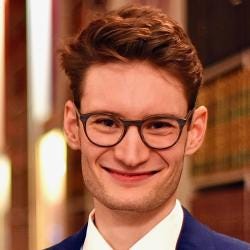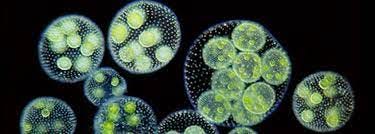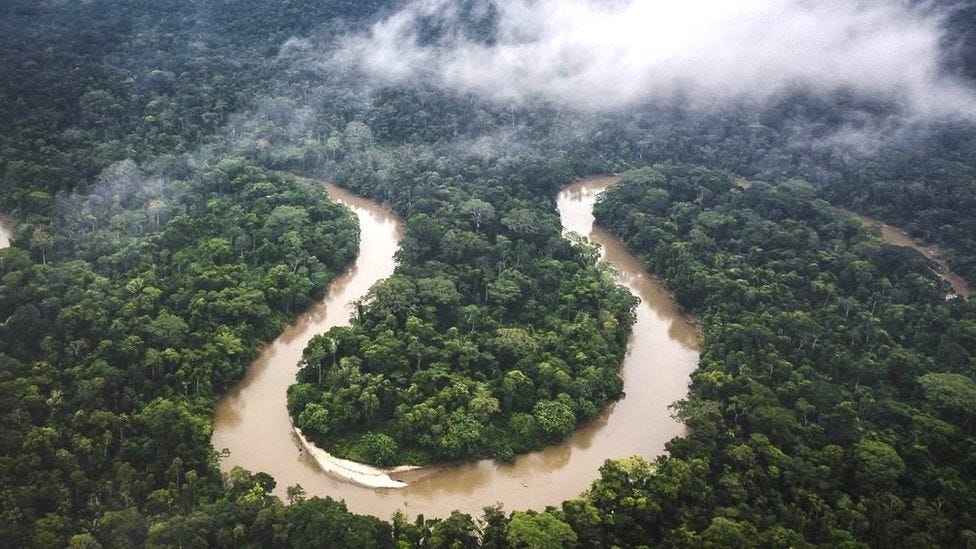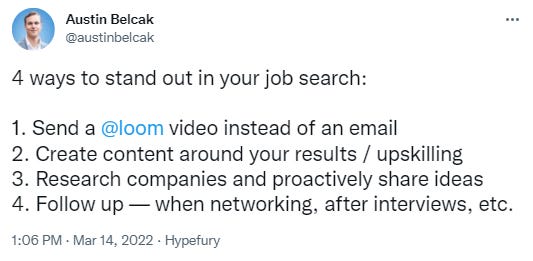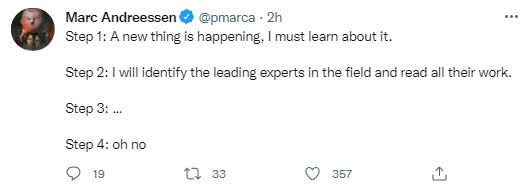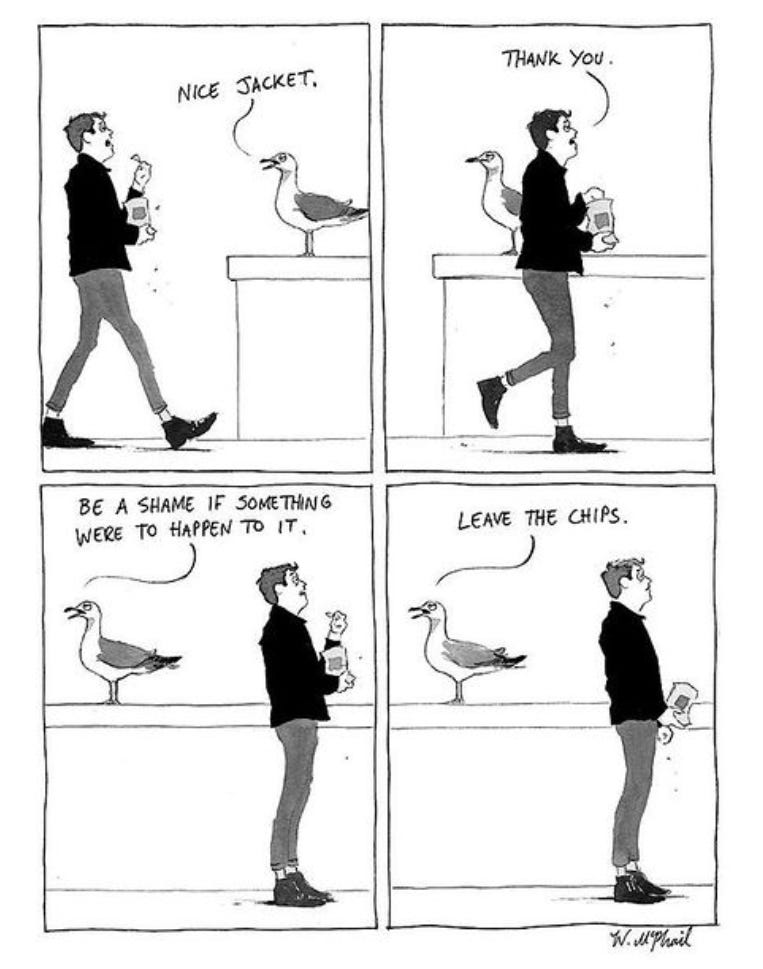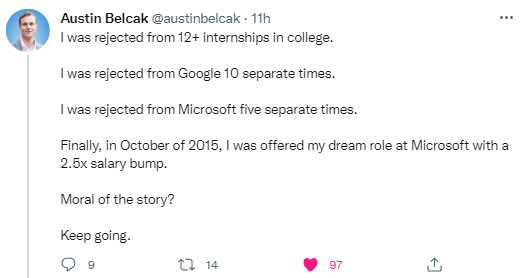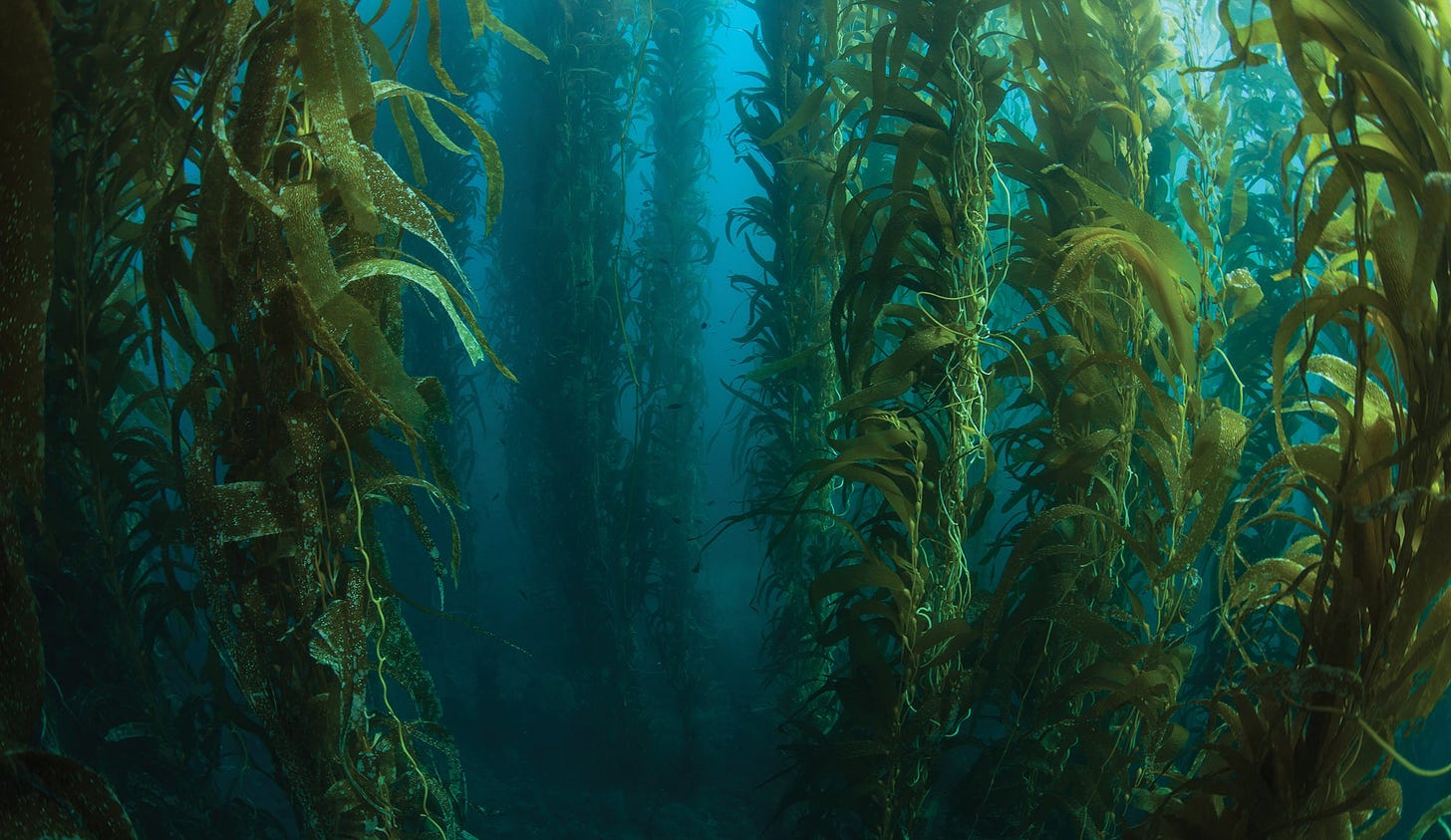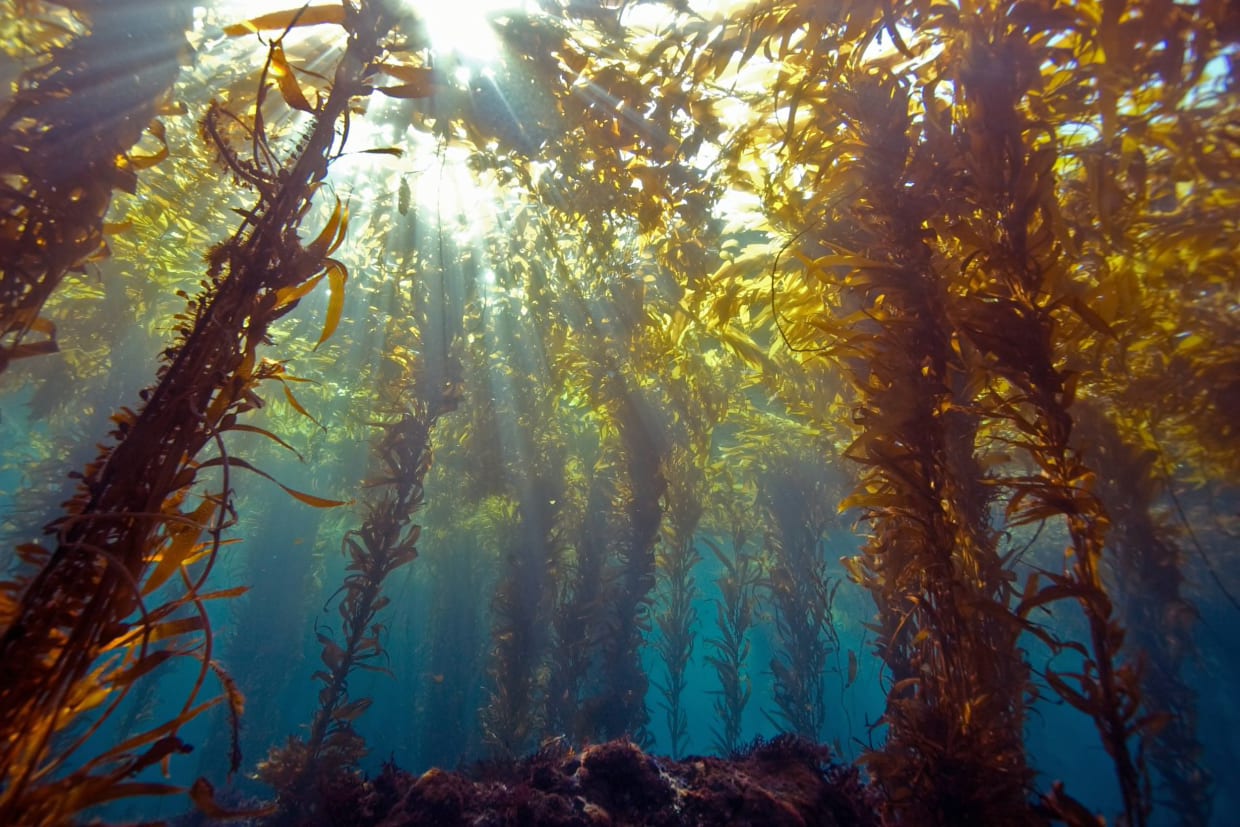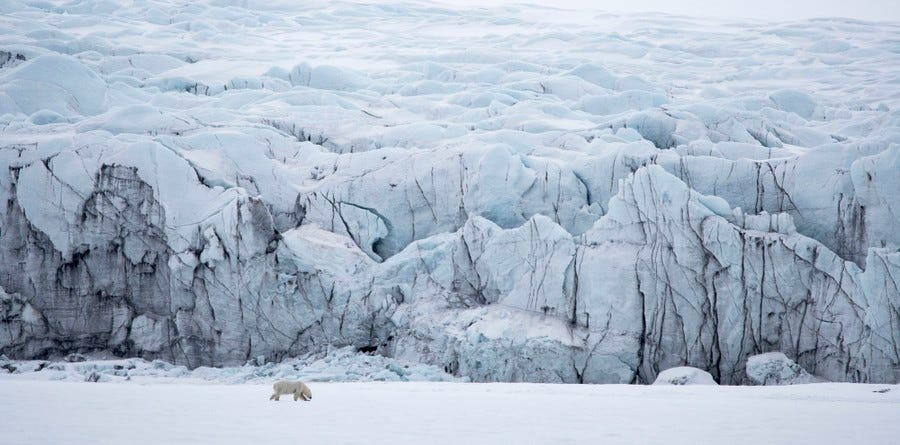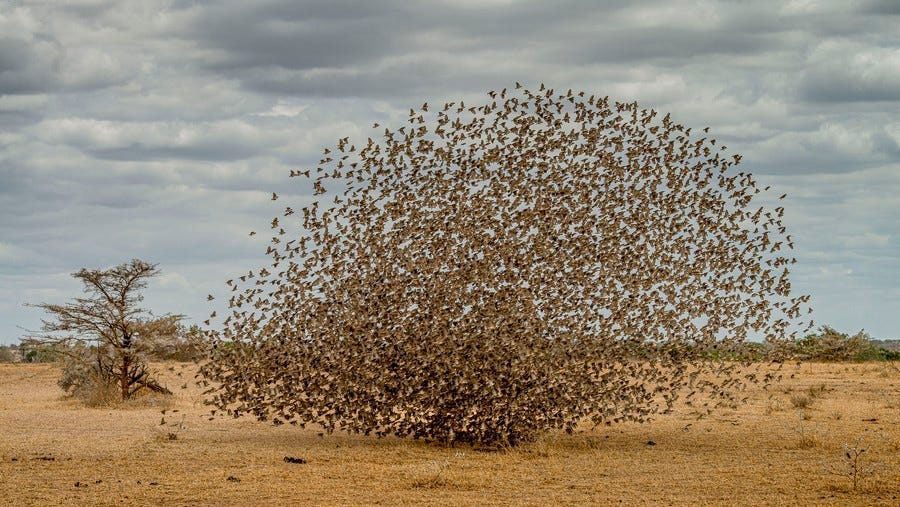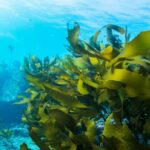A PuntSeq fireside chat, CRISPR, crypto and carbon
“All great achievements require time.” — Maya Angelou
Hello and welcome to The Paxtier Report for Wednesday, March 16th, 2022! Great news if you love cryptocurrency and climate. Just last week, an Australian engineer took to the WSJ to remind the world of the crypto carbon coin. In an interesting turn of events, he kindly shared his first draft of the product with us here:

In today’s email:
- News: $130trn investor climate coalition
- Chart: Israel alternative protein growth
- Epic: A whale shark swimming in plankton
- Fireside chat: Andre Holzer from The University of Cambridge
- Around the web: CRISPR for algae, Nautilus Labs fix global supply chains, and Shane Lowry dunks a beauty
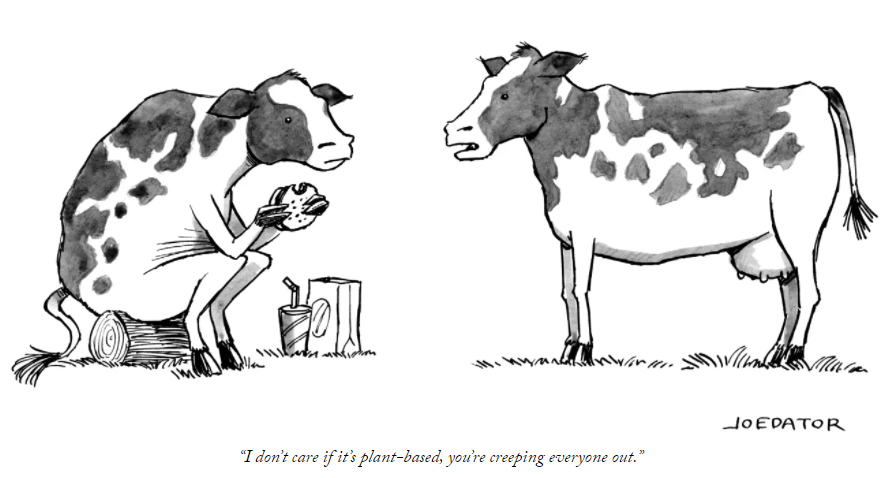
Markets and Investing
This week, investors were enthused by a new low carbon index by SGX and OCBC, and EU ministers reaching an agreement on a carbon tax poised to block out imports in iron, steel, cement and aluminum coming from countries with lower environmental standards.
Unfortunately, the positive vibes won’t reach many corporations as the annual general meetings season hopes to hold directors more accountable for their ESG performance. This follows news of The European Central Bank threatening to name and shame banks not meeting climate risk expectations, Shell being heavily reproached by ClientEarth, and a $130trn investor coalition called the ‘Global Standard on Responsible Climate Lobbying’ taking action against corporates who “lobby… to delay, dilute or block climate action”.
Elsewhere on the VC front, top energy companies launched a new $1bn clean tech fund, and a number of fascinating deals went through in the alt protein space. Perhaps most relevant to algae-tech was news of Finless Foods, the first cell-cultured seafood company to serve cell-cultured fish in the United States, closing a $34M Series B round. Israel retaliated somewhat to North America’s alt protein domination by publishing the Israel State of Alternative Protein Innovation Report March 2022. Their findings? A local alternative protein market up 450%:
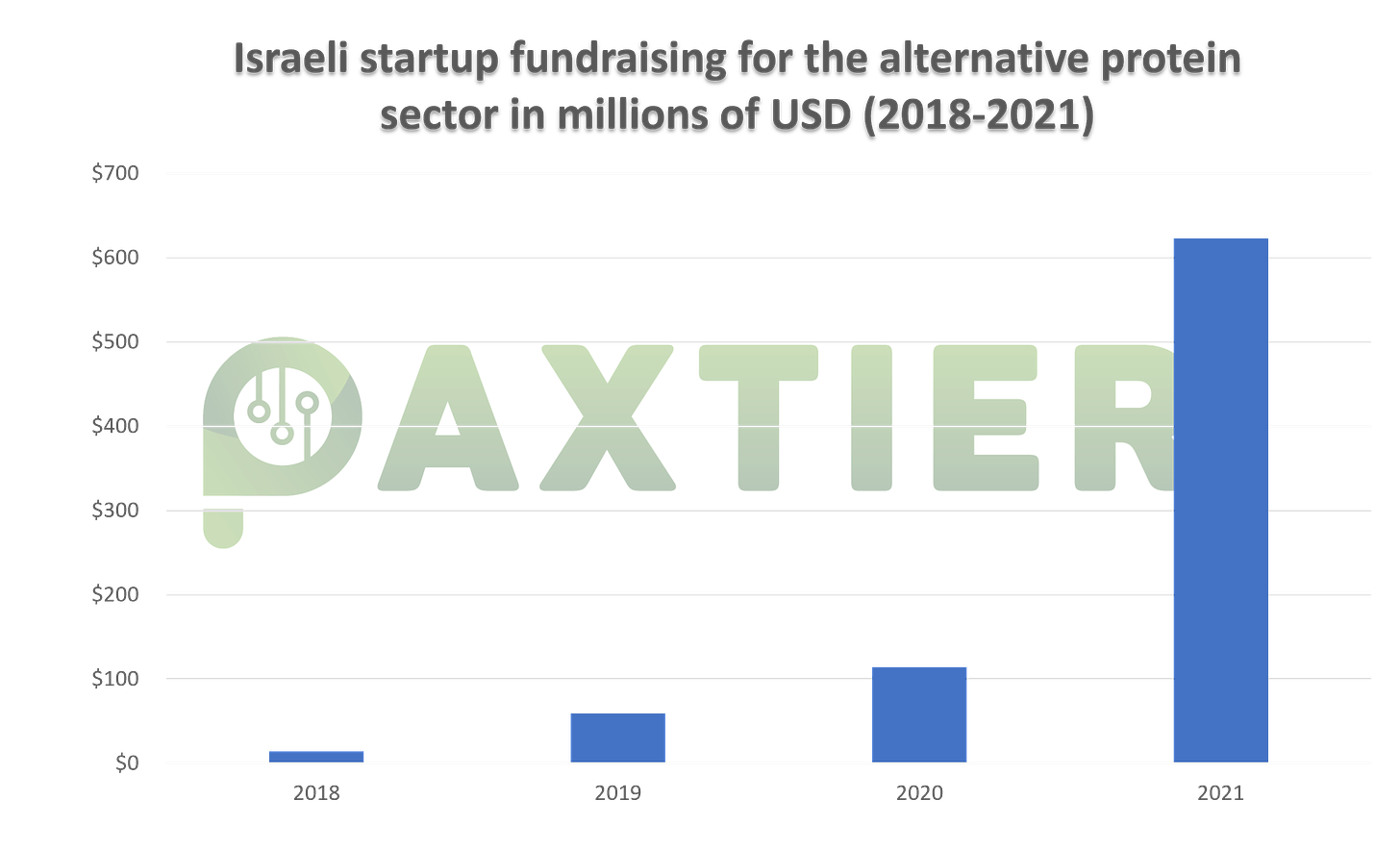
On the subject of food, Interstellar Lab also raised $5M recently to build closed-loop sustainable living systems in space. The company focusses on creating space-grade food production systems and habitat modules. Can you imagine seeing algae growing in these on mars?
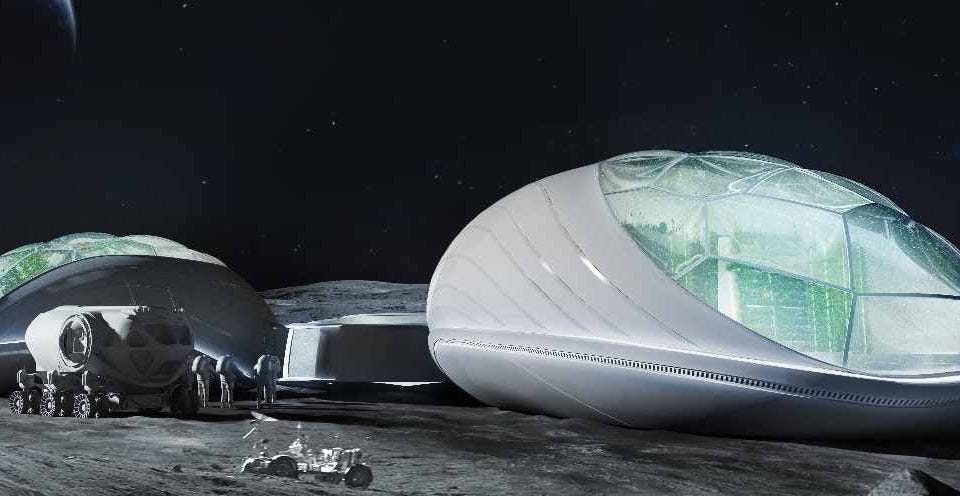
In depth with Peter Green
Andre Holzer from Cambridge University and PuntSeq
This week we sat down with Andre Holzer from Cambridge University. Andre completed a BSc degree in Molecular Biotechnology before he focused towards Computational and Systems Biology during his MSc. After graduating from Heidelberg University in 2017, he started his PhD at Cambridge where his research is investigating open questions in the evolution of B vitamin dependencies, and microbial interactions, as well as the role of transposable elements in algae by applying multi-omic approaches. In parallel, he is co-leader of the citizen science project PuntSeq, which is employing novel real-time DNA sequencing to monitor microbial composition of freshwater sources. Here’s a teaser from our recent call:
Why did you start working with ecosystems, microalgae and sequencing technology?
“We live in a very complex world held together by very complex ecosystems. Despite the number of studies taking place which look at ecosystems, we still know very little about the intricacies. That challenges is what drove me to study this space.
Alongside this reason, the time was also right. This is the moment in history where sequencing technology is shifting the focus of biotechnology towards bioinformatics and systems biology. This means we are now able to analyse complex interactions, and the complex microbial ecosystems which influence planetary health, ocean health and personal health.”
Could you expand on PuntSeq?
“The major breakthrough in sequencing technology came with the massive reduction in cost. While that price change was going on, we also saw the development of a whole suite of new, third generation sequencing technologies. These allowed us to look at longer DNA fragments using portable devices. Essentially, at PuntSeq we made full use of these tiny machines to provide a framework to help people address their water quality instantaneously. I joined the group very early on, and have been lucky enough to lead it alongside two other PhD students.”
Effect of short-term light irradiation with varying energy densities on the activities of nitrifiers in wastewater
Here’s a cool new paper from Yang et al. In this experiment, the team investigated the effects of light irradiation on microalgae in a microalgal-bacterial consortium process (MBCP) used to remove nitrogen from wastewater. The aim was to study the effects of three factors (light irradiation power, irradiation time and sludge concentration) on nitrifying bacteria like ammonia-oxidizing bacteria (AOB) and nitrite-oxidizing bacteria (NOB), something which hadn’t previously been studied in too much detail.
Overall, the findings indicated that light irradiation power affected the bacteria most. Interestingly, the light shock promoted extreme extracellular polymeric substance (EPS) production, which consisted of significant amounts of protein. The potential reason for this effect is best explained as a three-dimensional protection against the irradiation – due to the fact high light irradiation causes lethal damage to the cell.
It is hoped that these greater insights on nitrifiers will promote the development of MBCP for sustainable wastewater treatment, due to the fact MBCP is less resource intensive than conventional nitrification.
What’s been happening in the world of algae-tech?
- A New Warrior Enters the Battle Against Climate Change, Microscopic Organism Hunts Down Carbon in the Ocean
- Toxic Algae Plagued Ancient Maya Civilization
- Simultaneous feature engineering and interpretation: Forecasting harmful algal blooms using a deep learning approach
- Microalgae produced using industrial effluents
- Arraying of microphotosynthetic power cells for enhanced power output
- Flinders in R&D partnership with WA Asparagopsis startup
- Changes in trophic structure of an exploited fish community at the centennial scale are linked to fisheries and climate forces
- Sun sets on Mexico’s paradise beaches as climate crisis hits home
Tweets and photos of the week
Whale shark swimming through bioluminescent algae. Looks like a galaxy. 🖤🖤🖤 pic.twitter.com/TvzV5duViZ
— Elca Burger (@BurgerElca) March 7, 2022
damn I love this little algae-covered snake pic.twitter.com/1K1dOTKQvE
— Anuv (@Anuv_) March 13, 2022
- Biogranulation process facilitates cost-efficient resources recovery from microalgae-based wastewater treatment systems and the creation of a circular bioeconomy
- Pilot Project RoKKa Uses Wastewater To Produce Fertilizer And Raw Materials
- A dynamic model for temperature prediction in a façade-integrated photobioreactor
- The East Coast’s First Indigenous Kelp Farm Readies for Harvest
- Algae: Study of Edible and Biologically Active Fractions, Their Properties and Applications
- Biogeochemical dynamics of nutrients and rare earth elements (REEs) during natural succession from biocrusts to pioneer plants in REE mine tailings in southern China
- DNA- and RNA-based bacterial communities and geochemical zonation under changing sediment porewater dynamics on the Aldabra Atoll
- Recurring adaptive introgression of a supergene variant that determines social organization
- Phycoremediation: a means for restoration of water contamination
- Electrostatic charges on microalgae surface: Mechanism and applications
- Surface gas-exchange processes of snow algae
- Development and Optimization of CRISPR Prime Editing System in Photoautotrophic Cells
Snippets:
Nature-based solutions and the evolution of agriculture
Nautilus Labs get a big cash injection to fix supply chains
Intel takes a big bet on Europe
Jobs:
Viridos La Jolla, CA, US:
Global Algae Innovations:
- Open Positions in Springfield, Illinois
- Open Positions in San Diego, California
- Open Positions in Lihue, Kauai, Hawaii
Vintage Ronaldo:
Shane Lowry stealing headlines:
Some photos credit The Atlantic
Thanks again for joining us this week! Looking forward to seeing you soon.
Best,
Peter
Paxtier

